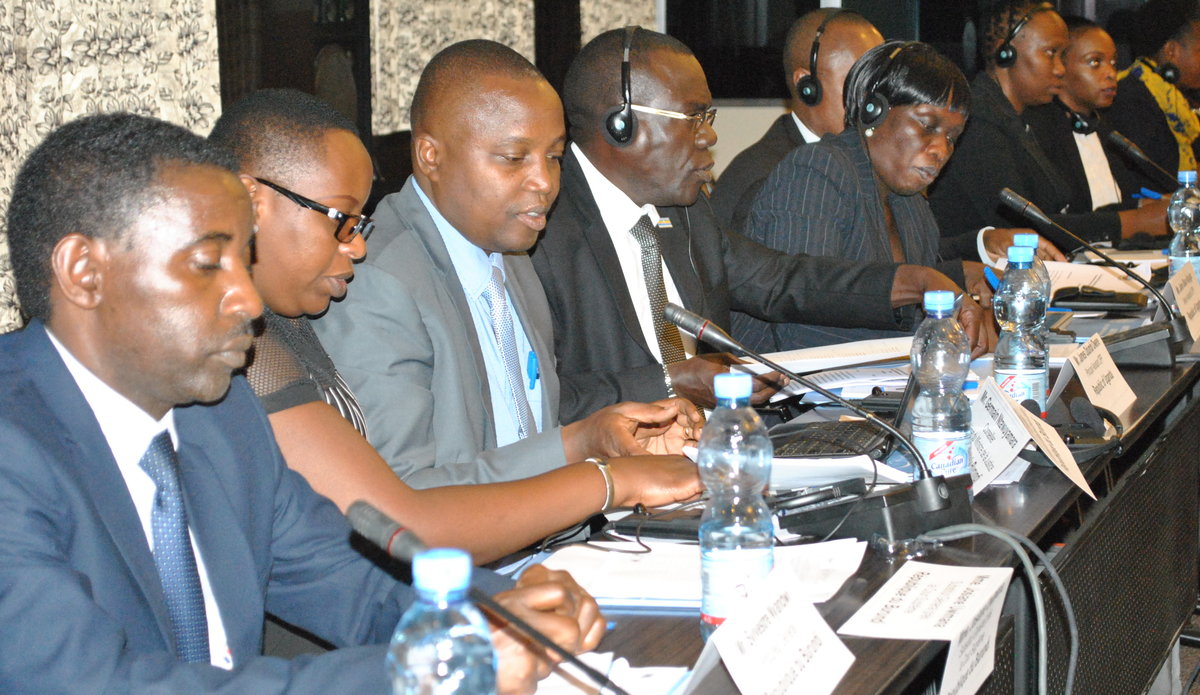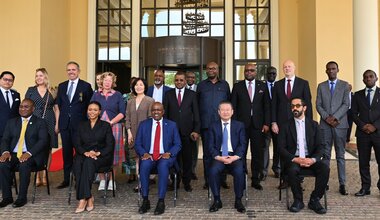The Great Lakes Judicial Cooperation Network meets in Dar es Salaam, TZ, to better coordinate efforts against cross-border crime in the region
Dar es Salaam (Tanzania), 14 June 2018 – The International Conference on the Great Lakes Region (ICGLR) in collaboration with the Office of the United Nations Special Envoy for the Great Lakes and the United Nations Office on Drugs and Crime (UNODC), organized a meeting of the Great Lakes Judicial Cooperation Network in Dar es Salaam, Tanzania, on 13-14 June 2018. This is the second meeting of the Great Lakes Judicial Cooperation Network in the region. The first one was held in Khartoum, Sudan, on 1-2 November 2017.
The Great Lakes Judicial Cooperation Network is a tool to connect national Focal Points on judicial cooperation and to facilitate access to legislation and statistics. Crime within the Great Lakes region often has a cross-border element. The cross-border element of crimes cannot make successful investigation and prosecution so long as the countries of the region do not work together effectively. “In this regard, the idea of creating mechanisms to strengthen regional judicial cooperation is not new: it stems from key provisions of the 2006 ICGLR Pact on Security, Stability and Development for the Great Lakes region (ICGLR Pact) and related Protocols, as well as from commitments of the 2013 Peace, Security and Cooperation Framework for the Democratic Republic of the Congo and the region,” United Nations Special Envoy for the Great Lakes region, Said Djinnit, said in his opening remarks at the meeting.
The Peace, Security and Cooperation Framework signed in Addis Ababa in February 2013 aims to help "address the root causes of conflict and put an end to recurring cycles of violence" in eastern Democratic Republic of the Congo and the Great Lakes Region. To highlight the relevance of the Judicial Cooperation Network considering the many threats to peace and security in the region, Mr. Djinnit said: “I would like to stress the fact that the network was created by the countries to support their own efforts to fight impunity. It is your mechanism and I encourage you to fully own it”. “The success of the Network will not only send strong signals that impunity will no longer be tolerated. It will also contribute to re-establish trust amongst the countries of the region, a trust based on closer collaboration and the rule of law,” he added.
The main objectives of the meeting were to: (i) allow ICGLR countries to better fulfil their legal commitments under the ICGLR established framework - including under the ICGLR Protocol on Judicial Cooperation and the Protocol against the illegal exploitation of Natural Resources; (ii) support efforts of the region to fight against impunity for transnational crimes as well as war crimes/crimes against humanity/genocide through the operationalization of technical tools that facilitate judicial cooperation; (iii) expedite the prosecution of specific cases for which procedural bottlenecks have been identified and recommendations put forward and actioned; and (iv) increase the practical understanding of the Great Lakes Judicial Cooperation Network, its contact points, resources and tools by country members of the network with a view to promoting full ownership of the same.
Participants at the meeting came from the 12 ICGLR countries (Angola, Burundi, Central African Republic, Republic of the Congo, Democratic Republic of the Congo, Kenya, Rwanda, Sudan, South Sudan, Tanzania, Uganda and Zambia) as well as from the Office of the Special Envoy for the Great Lakes, UNODC, and from the Tanzanian Ministry of Justice.
 UN
UN





